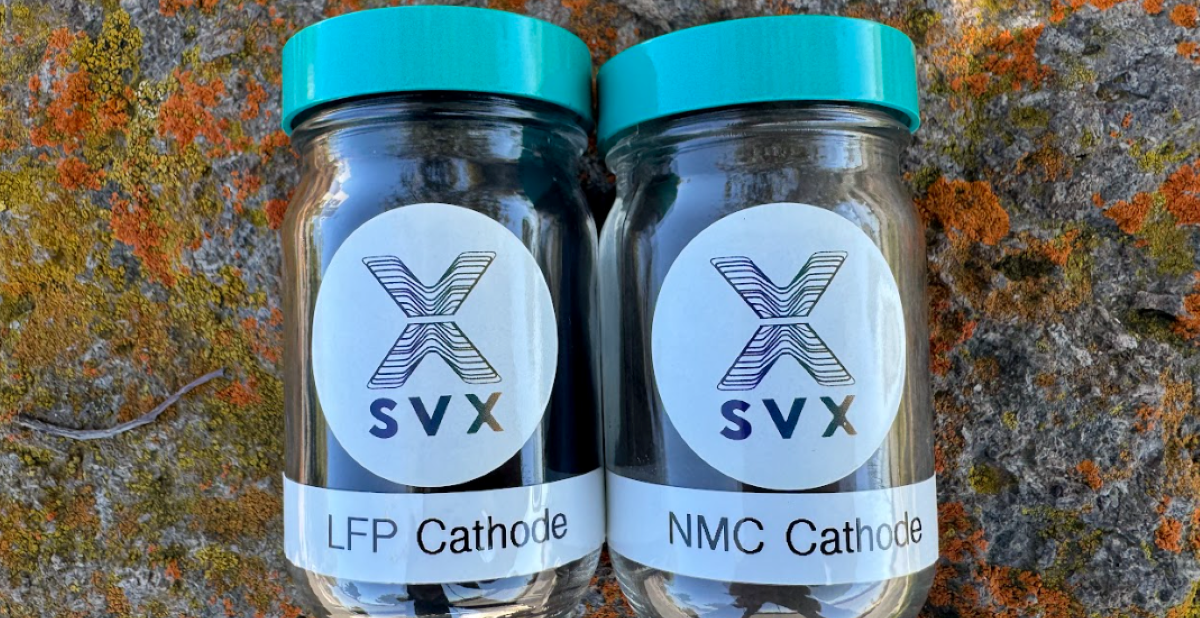From ESS News
Sylvatex, a U.S.-based cathode active materials startup, is developing a low-cost, more energy-efficient process to synthesize cathode materials for lithium-ion batteries. The company is targeting its technology for batteries used in electric vehicles (EV) and energy storage systems (ESS).
Its latest project will validate its lithium iron phosphate (LFP) cathode technology in two common types of lithium-ion batteries (LIBs). The project has a $1.4 million budget provided by the U.S. Department of Energy's Advanced Research Projects Agency-Energy (ARPA-E) through its EVS4ALL program, which will accelerate U.S. adoption of EVs, including battery manufacturing innovations and recycling processes.
“Our process allows for a broader range of inputs to be used with the addition of a trade secret organic bio-waste feedstock that is abundant in supply. This additive allows the materials to come together at the nanoscale, which enables our efficient, manufacturing process,” Virginia Klausmeier, Sylvatex CEO, told ESS News.
“By using this bio-derived additive, we’ve developed a single-step dry synthesis process that significantly reduces energy consumption, eliminates water usage, and replaces metal sulfates with metal oxides, thereby removing sodium sulfate waste,” she explained, adding that the innovation enables a smaller environmental footprint along with reduced capital expenditure and operational costs compared to conventional methods.
The ARPA-E project site describes Sylvatex’s waterless cathode materials process as a “simplified continuous” approach to processing LFP-based materials that could “reduce energy consumption by 80%, waste by 60%, and cost by 60% relative to the incumbent commercial process.”
In September, Sylvatex announced receiving a grant enabling it to initiate a megawatt-scale pilot line with a projected output of 10 kg per day to be installed in early 2025 in Alameda, California. It also announced plans to “demonstrate the flexibility” of its CAM manufacturing process by applying it to both LFP and nickel manganese cobalt (NMC) chemistries.
The size of the commercialization acceleration grant was $2.3 million, awarded by the Realizing Accelerated Manufacturing and Production for Clean Energy Technologies (RAMP) program of the California Energy Commission.
“Our technology is designed to be adaptable across various battery chemistries, including CAM for solid-state batteries and other next-generation energy storage solutions,” said Klausmeier.
A collaboration with Michigan-based EV battery startup Our Next Energy (ONE) for the production and testing of large-format EV cells also began this year.
Earlier in the year, Sylvatex shipped evaluation samples of its materials to five companies, including a global automotive manufacturer, a global chemicals company, and a solid-state battery company.
Founded in 2012, Sylvatex has raised over $20 million in funding, with about half being non-dilutive research grants. “This funding has been instrumental in supporting our research, product-market development, and scale-up efforts as we work to meet the energy storage and electric vehicle growing demand for sustainable battery materials,” said Klausmeier.
Its venture capital investors include U.S.-based Catalus Capital serving as the lead investor, along with Amplify Capital and How Women Invest.
This content is protected by copyright and may not be reused. If you want to cooperate with us and would like to reuse some of our content, please contact: editors@pv-magazine.com.



By submitting this form you agree to pv magazine using your data for the purposes of publishing your comment.
Your personal data will only be disclosed or otherwise transmitted to third parties for the purposes of spam filtering or if this is necessary for technical maintenance of the website. Any other transfer to third parties will not take place unless this is justified on the basis of applicable data protection regulations or if pv magazine is legally obliged to do so.
You may revoke this consent at any time with effect for the future, in which case your personal data will be deleted immediately. Otherwise, your data will be deleted if pv magazine has processed your request or the purpose of data storage is fulfilled.
Further information on data privacy can be found in our Data Protection Policy.